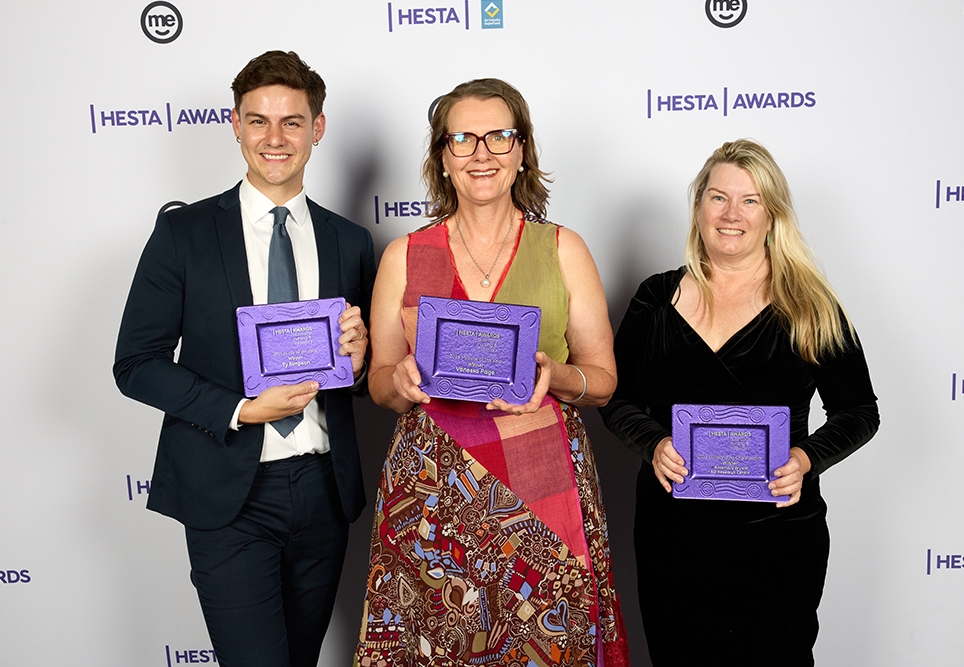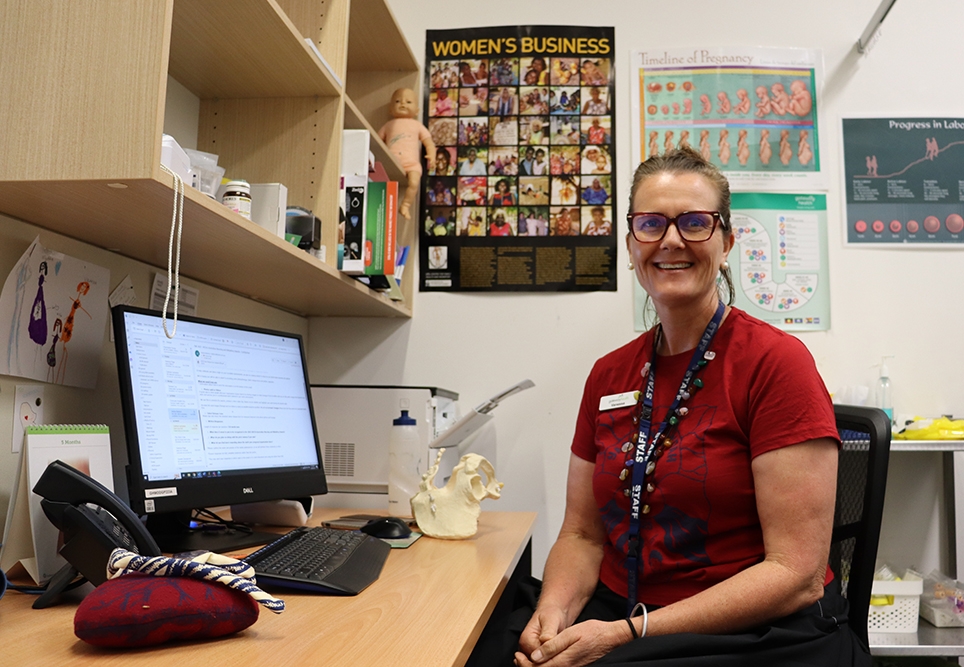This site may not work properly using older versions of Edge and Internet Explorer. You should upgrade your browser to the latest Chrome, Firefox, Edge, Safari, or any other modern browser of your choice. Click here for more information.
Your Stories
This is where we tell your stories, cover topical issues and promote meaningful initiatives.
Q&A with 2025 HESTA Australian Nursing & Midwifery Awards Midwife of the Year, Vanessa Page
Longstanding CRANAplus Member and supporter, Vanessa Page, was named Midwife of the Year at the 2025 HESTA Australian Nursing & Midwifery Awards in recognition of her Endorsed Midwife Care Program at Gateway Health Wodonga, where she works as a nurse practitioner and endorsed midwife. CRANAplus caught up with her to hear about the award and her extensive background in remote health.
Congratulations on your Midwife of the Year Award! What does receiving this mean to you?
Well, firstly, immense pride. I am passionate about my work in women’s and maternal health, and, in particular, the care I provide to vulnerable people in my community.
I’m proud of the unique model of care that I initiated out of need at Gateway Health but could not have achieved the Endorsed Midwife Care Program without support.
There are many innovative midwives in Australia doing wonderful things, and I’m just one of them, so I feel very humbled.
Could you explain your Endorsed Midwife Care Program?
When I first arrived here from the north, I very quickly realised there was a gap in continuity of midwife care for more vulnerable, complex women.
In the Albury/Wodonga region, there are few public midwife pregnancy care options. And until recently, there was no public high-risk obstetric or medical clinic in the area either. Women were required to attend private obstetric care with a fee for service, and many women just can’t afford these appointments.
So, for this reason, vulnerable and complex pregnancies can end up having ad hoc or limited pregnancy care.
The Endorsed Midwife Care Program has evolved into an all-risk continuity of midwife care program for vulnerable members of the community, in particular CALD [culturally and linguistically diverse] clients.
The program is very well networked with pregnancy care providers in the region, so these more complex women are absolutely linked in where they need to be linked in, but – and this is the important bit – not at the expense of missing out on continuity of midwife care. Women who have complex, high-risk pregnancies often end up down a medical trajectory and become exempt from midwife care. That’s probably the biggest thing I’m passionate about, is that these women still have midwife care, despite their complexities.
You also spent over 15 years in remote Australia – what did that journey look like?
I embarked on a trip around Australia, where I ended up stopping in Alice Springs for a year and worked in ICU, and it really was this experience that sparked my passion for remote and Aboriginal health.
I headed out to Mutitjulu at the base of Uluru where I worked as a remote area nurse. I then did a few short locums around the place.
It was a scenario out bush that made me realise I really needed to become a midwife. Most scenarios out bush didn’t phase me too much with my ICU and ED background, but I had quite a significant obstetric emergency, and so I decided it was time.
I moved back to Victoria to do my Midwifery and as soon as I finished, I was just desperate to get back up north. I was then in the Kimberley for 11 years.
What aspects of remote health care are you most passionate about?
I just loved, and still love, working with First Nations people. My 15 plus years of working remote have been the richest years of my life. It was the women out bush, particularly the women in the Kimberley — the strength and power of these women — that really inspired me.
CRANAplus has been lucky to have you spend time as a Board member, volunteer facilitator, and longstanding Member since the early 2000s. What has that involvement been like for you?
I remember attending my first CRANAplus conference in the Blue Mountains where I was in awe of some of the leaders at the time. I just thought, ‘Oh, I just want to be you’.
Fairly soon after, I joined the Board and had a few years as a committee member. I was still fairly junior in the remote world, but it was a wonderful learning curve from a clinical governance perspective, as well as a professional perspective. And it just got me in that circle of these great leaders.
Then, of course, I became a facilitator for the MEC [Maternity Emergency Care] and MIDUS [Midwifery Upskilling] courses. I love sharing my knowledge, particularly on MEC, because you are delivering that course to remote area nurses who are just hungry for this information. Anything obstetric frightens them, and I was there, I’ve been there done that, and to be able to impart some practical knowledge is a real pleasure.
Finally, what advice would you give rural and remote healthcare professionals who want to create change?
Network, network, network. I love networking. I just really love being around like-minded health professionals. They really help inspire me to do what I’m doing. Align yourself with like-minded people and together, as a cohort, you can do great things.
Do you know a remote area nurse, midwife or health professional who deserves recognition for their positive impact on remote health? Show them some love by nominating them for an Australian Remote Health Award. For everything you need to know, visit crana.org.au/awards

